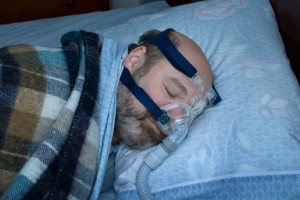Factors affecting sleep apnea.
Specifically what is sleep apnea?
Sleep apnea is a illness where by there is an blockage in the airway whilst sleeping that prevents normal respiration. The obstruction can be possibly incomplete (just partially blocking the air passage) or complete. This results in pauses in respiration which diminishes the amount of o2 within the blood. Over time this has adverse effects.
Jaw muscle involvement.
Naturally when we are awake there is a certain muscle tone in the jaw muscles that keeps it forward and the airway open. This tone is produced by certain areas of the brain called your cerebellum and frontal lobes. These areas are most active when we are awake and decrease their activity when we go to sleep. However with the decrease in muscle activity in sleep there is a risk the jaw will slip backward when lying on your back and then it will close off the airway.
Nose defects.
Some people have what is known as a septal deviation in their nose. The septum is what separates the two sides of the nose from each other. This should be nice and straight allowing

Sleep apnea is a serious problem, but CPAP should be only part of the treatment.
free movement of air through the nose. In some people the septum is deviated and blocks the free passage of air through the nose. Causes can be an uncorrected broken nose or may be just the way you were born. Correcting this is difficult and usually needs surgery. It is a painful and unpleasant procedure. I would try other options first!
Alcohol, smoking and drugs (including Sleeping pills.)
These three all affect brain activation making the effects of any decrease in activity worse. They are toxic to the brain and this is usually how they have their effects. Sleeping pills alsodrive down the activity in the brain further making the muscles even looser.
Smoking also decreases the circulating levels of oxygen within the blood stream, making the effects of sleep apnea worse. Stopping smoking is beyond the scope of this guide but there are several good methods out there to help.
Weight.
People who are overweight also suffer more from sleep apnea, or the weight makes their sleep apnea worse. It can be a real Catch 22 as sleep apnea makes diabetes a greater risk, and the insulin resistance that comes with it makes it harder to lose weight. So your weight makes you more likely to suffer sleep apnea, which in turn makes it harder to lose weight. Exercise at a level approved by your healthcare provider and sensible dietary modifications are great places to start. Click here for a program designed by nutritionists tailored specifically for weight loss in sleep apnea.
Addressing sleep apnea is something that has to consider many factors. One of the things to do is a sleep apnea exercise program to improve the activity in the jaw muscles so they are less likely to allow the jaw to fall backward. You can also do this through improving brain activity. Any sleep apnea treatment you undertake should include treatments to do this.


